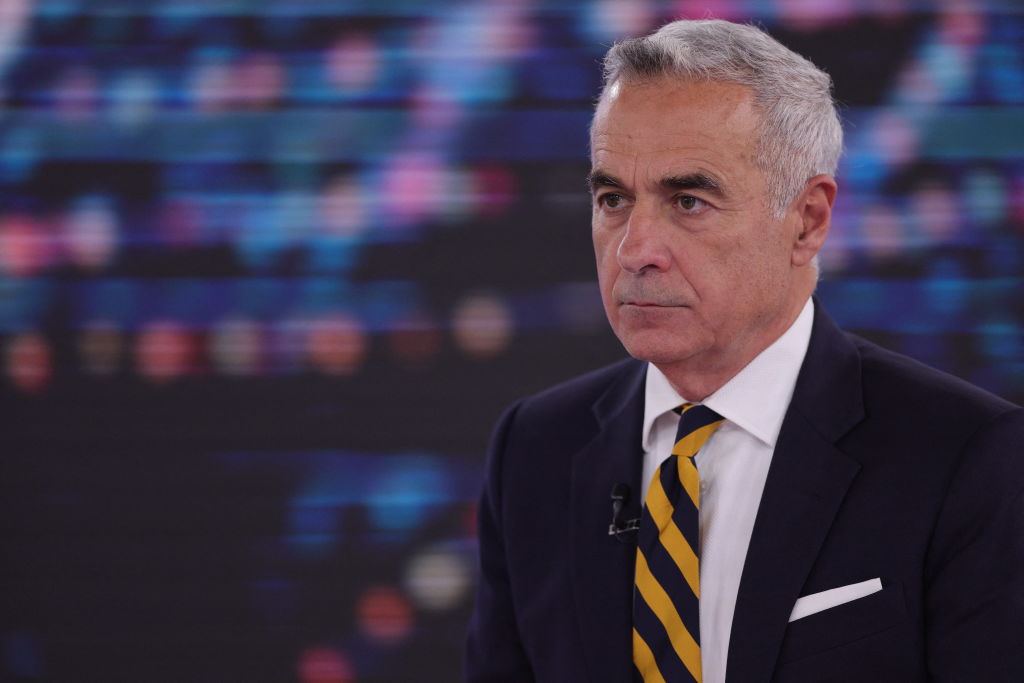In a result that has caused alarm throughout Europe, “hard-Right” unaffiliated candidate Călin Georgescu has emerged victorious in the first round of the Romanian presidential election.
Winning 23% of the vote, Georgescu beat both Elena Lasconi of the centre-right liberal Save Romania Union and current Prime Minister Marcel Ciolacu of the Social Democratic Party, who polled 19% each. With no candidate winning an absolute majority, Georgescu — formerly linked to the nationalist Alliance for the Union of Romanians (abbreviated to AUR, which is also active in neighbouring Moldova) — will compete in the run-off scheduled for 8 December against Lasconi. Ciolacu, meanwhile, resigned yesterday as party leader.
As well as provoking outrage in the conventional Romanian political classes, Georgescu’s unexpected victory in the first round of the ninth presidential election held in post-revolution Romania will also concern the European security establishment. The Kremlin-friendly candidate has previously praised Russia’s President Vladimir Putin as “a man who loves his country”, and claimed that Romania’s future lies with “Russian wisdom”. This means that the country’s pro-Ukraine stance would be in doubt if Georgescu is elected president. Indeed, it would create a Kremlin-leaning axis on Ukraine’s border, including Hungarian Prime Minister Viktor Orbán and Slovakian Prime Minister Robert Fico.
Georgescu has also condemned as a “shame of diplomacy” Nato’s installation of a ballistic missile defence shield in the Romanian commune of Deveselu. This is significant, as the president of Romania is commander-in-chief of the country’s armed forces and presides over the Supreme Council of National Defence. Georgescu’s foreign policy views were ultimately responsible for his departure from AUR, with senior members saying that he was damaging the party’s public image. AUR’s presidential candidate, George Simion, dubbed by some as the “Romanian Trump”, finished fourth with 13% of the vote.
Presidential powers in Romania are relatively limited in domestic affairs when compared to matters of national defence and foreign policy. But Georgescu has won popularity at home by focusing on Romania’s ongoing cost-of-living crisis, calling for a stronger emphasis on reducing the country’s dependence on imports by ramping up the local production of energy and supporting agricultural communities. Indeed, Georgescu has a special interest in such matters, as a graduate of the Nicolae Bălcescu Institute of Agronomy and holder of a doctorate in soil sciences. He also previously served as the executive director of the United Nations Global Sustainable Index Institute in Geneva, Switzerland and Vaduz, Liechtenstein.
Georgescu’s political rise challenges the caricaturing of Right-wing populist politics as “anti-expert” by the Left-liberal intelligentsia. He has shown that the professorial worldly type — in his case, a senior expert in sustainable development who has worked for the UN — can find electoral success as an anti-establishment candidate of the Right. Thanks to policies centred on national self-sufficiency and effective campaigning via platforms such as TikTok (where he has shown both his love for attending church and competitive edge in judo), Georgescu has blended his social traditionalism with an embrace of modern technology to impressive effect. He has rejected cultural liberalism and circumvented “legacy media” in the process.
It remains to be seen how the run-off in the presidential election will pan out. Will there be a “Stop Georgescu” pact in which the Social Democratic Party encourages its supporters to shift their support to Lasconi? How will the leadership of AUR, the party which pushed Georgescu out of its ranks over his views on security and defence, advise their voters? The Christian democratic and socially conservative National Liberal Party won 9% of the vote share: how will these voters break in the decisive second round?
One thing is certain: if much of Europe previously didn’t know about the unlikely first-round victor of the Romanian presidential elections, they do now.











Join the discussion
Join like minded readers that support our journalism by becoming a paid subscriber
To join the discussion in the comments, become a paid subscriber.
Join like minded readers that support our journalism, read unlimited articles and enjoy other subscriber-only benefits.
Subscribe